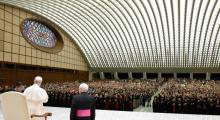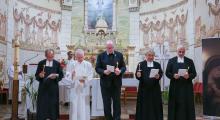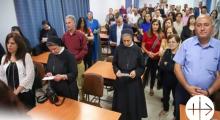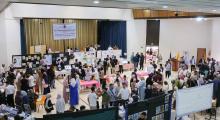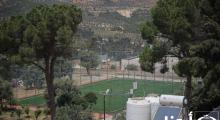Issued by the Catholic Center for Studies and Media - Jordan. Editor-in-chief Fr. Rif'at Bader - موقع أبونا abouna.org
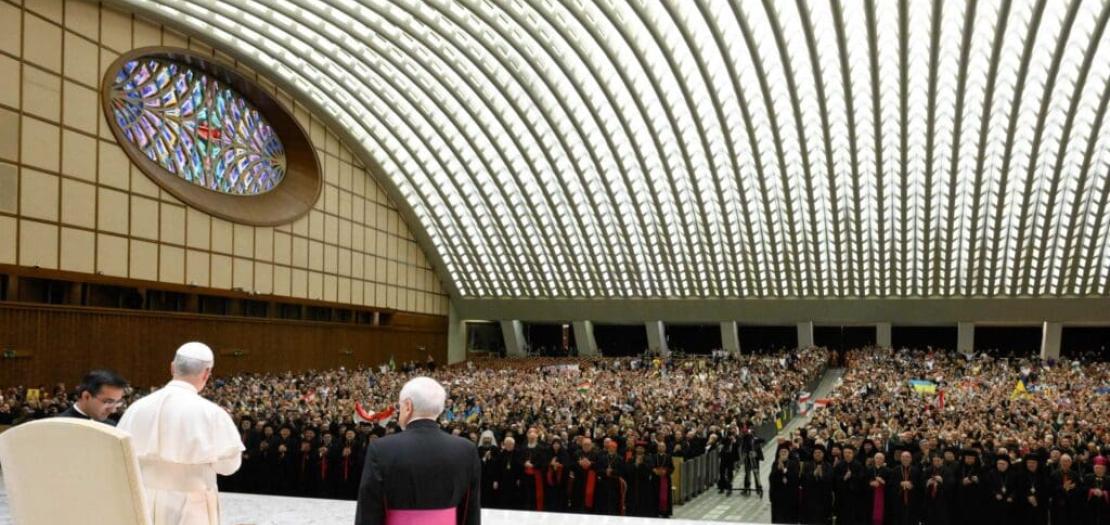
Christianity is more than a religion. It is rather a divine message in human life whose last stop is proceeding to the Kingdom of God. It is a Divine message that rectifies human behaviors and transcends peoples into a life full of peace, satisfaction, mercy, love, and common living.
On May 14, 2025, His Holiness Pope Leo XIV welcomed Eastern Catholics to the Vatican for the Jubilee of Eastern Churches during which he highlighted the need to preserve their tradition. While addressing them with the Easter greeting “Christ is risen, He is truly risen”, he expressed concern for “many of our Eastern brothers and sisters” who have been exiled from their homelands “and risk losing not only their native lands,” but also their religious identity.
Addressing the Christians of the East, he said, “The Church needs you… the contribution that the Christians of the East can offer us today is immense.”
While lamenting the violence plaguing regions in the world including the Holy land, he urged praying for peace while forcefully expressing his commitment “to make every effort so that peace may prevail.” He, furthermore, affirmed the need for Eastern Christians to be given “the opportunity, and not just in words, to remain in their native lands with all the rights needed for a secure existence.”
Actually, His Holiness Pope Leo XIV touched on very sensitive issues with his noble and perspicacious remarks that remain the focus of attention of the Eastern Catholics, namely with regards to their livelihood, the circumstances they are going through, and the future they look forward to for their children and for the future generations. In this regard, the question that is raised, "Will the Eastern Catholics stay in their relative countries or look for every opportunity to leave?
Dr. Bernard Sabella, a retired sociology professor from Bethlehem University in the Holy Land, has lamented the rapid decline of Christians in the Middle East, noting this community was “among the oldest in the world.” He said, “You have the Copts in Egypt, about 12 million. The Assyrians in Iraq used to be 1.3 million and are now about 300,000. The Maronites in Lebanon are 30–35 per cent of the population. In total, there are roughly 15 million Christians in the region.” He adds, “The region needs real peace, not just between governments but between peoples. Without that, minorities will continue to leave. We need a political vision that includes all Christians, Yazidis, and Kurds. Otherwise, the whole region is weakened.”
Immigration to the West was naturally an answer for many Middle Eastern Christians. The decline of Middle Eastern Christianity is not only a story that began in our recent years as it is "as old as the hills". Yet at present time, it is the outcome of economic constraints accompanied by persecution and discrimination. It is an ongoing story as we have in the West growing Middle Eastern Christian communities. They have grown from the 1970s and the 1980s, as people were fleeing their mysterious and unpredictable presence to a hopefully flourishing future.
The question that arises, “Do Christians in the Middle East have a future?” or rather “What future awaits the Christians of the Middle East who are the cradle, or rather the dawn of Christianity? The answer is that this region is in dire need for genuine peace, during which all peoples regardless of their religious affiliations may work hand-in-hand towards the progress and the prosperity of their societies.
All in all, Eastern Catholics will always remain "precious in God’s eyes.”
Thank you, Your Holiness Pope Leo XIV, for lifting the lid on this sensitive issue. It is hoped that your extremely valuable and sagacious remarks will not fall on deaf ears, but rather resonate in all parts of the world to find viable solutions to this long-lasting thorny issue.


